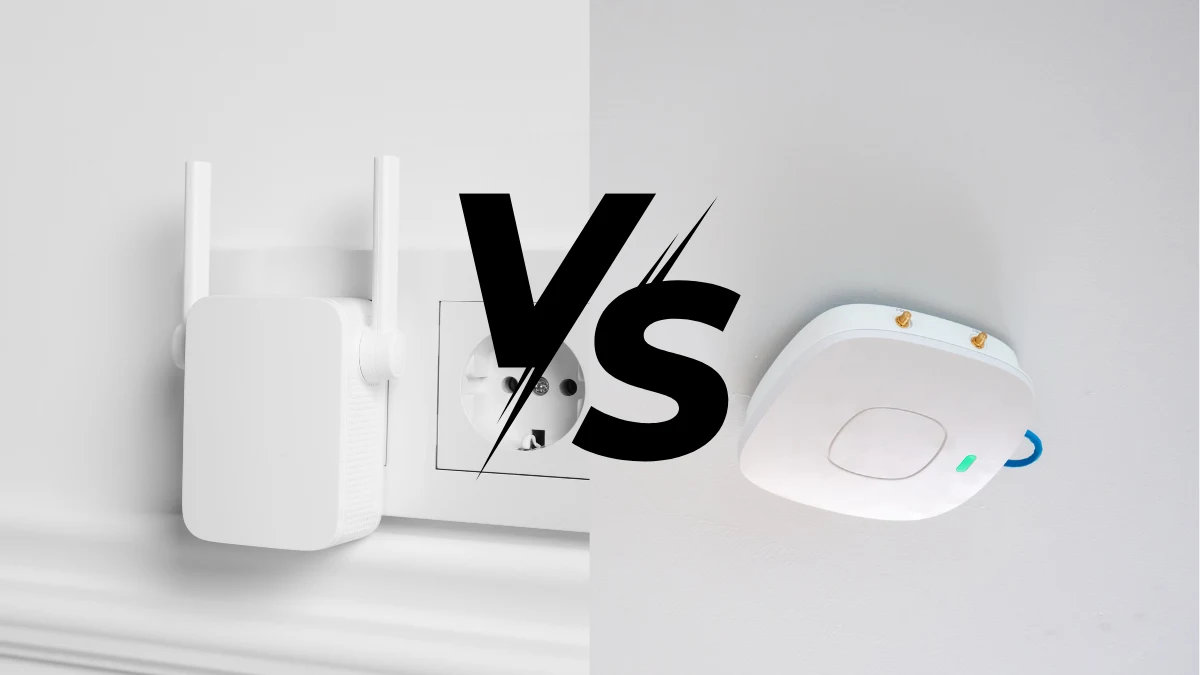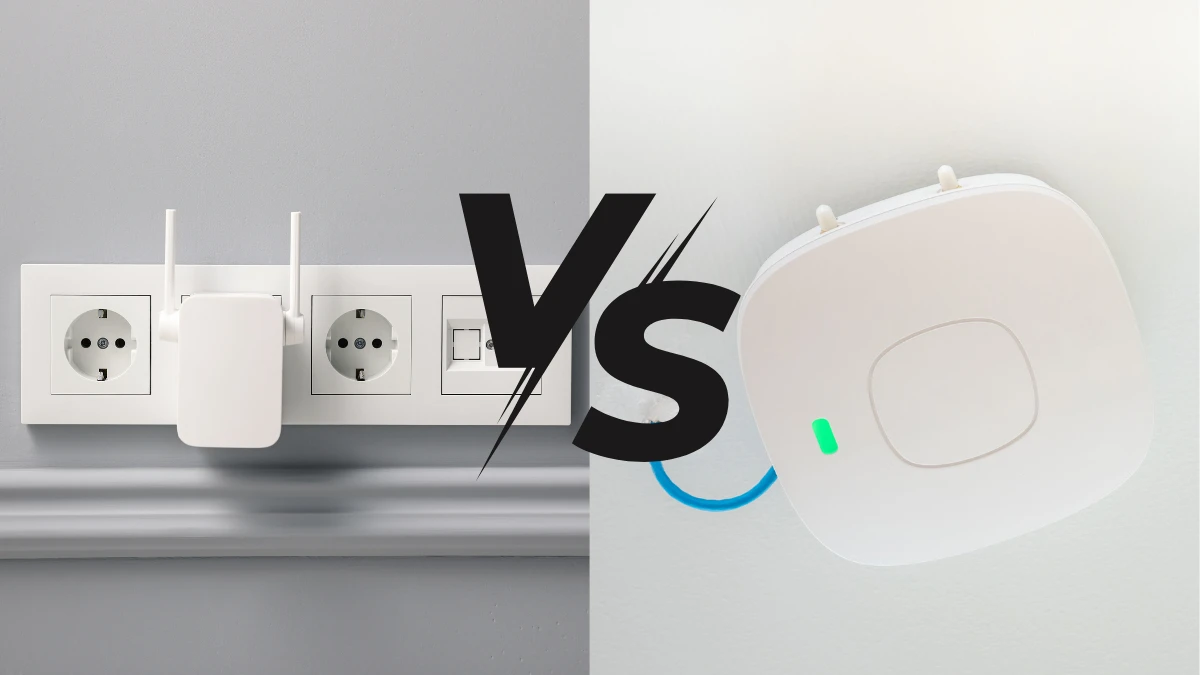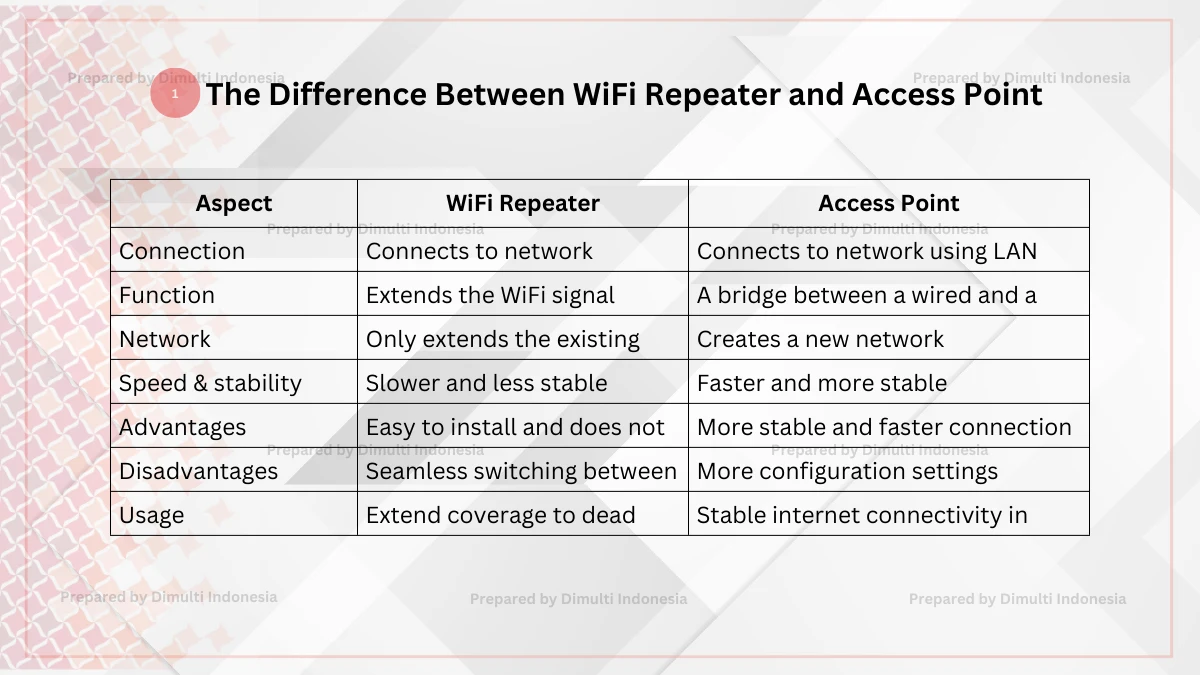A WiFi repeater and an access point are the keys to extending the WiFi range. Although both maximize the expansion of internet connection, WiFi repeater vs access point have some significant differences.
The differences between WiFi repeater vs access point include connection, function, network, speed & stability, advantages, disadvantages, and usage.
This article will delve into the important differences between WiFi repeater vs access point for extending the WiFi range.
What is a WiFi Repeater?

As the name suggests, a WiFi repeater is an electronic device used to extend the range of a WiFi signal. In other words, a repeater acts as an amplifier and rebroadcaster of WiFi signals, enabling them to reach areas that were previously difficult to reach with the main signal.
A WiFi repeater amplifies and rebroadcasts WiFi signals by receiving signals from the main router and rebroadcasting them to a wider area with greater strength.
What is an Access Point

An access point is a device that allows various devices, such as laptops, smartphones, and tablets, to connect to the internet wirelessly (via WiFi).
This tool acts as a liaison between wired networks and wireless devices so that the internet connection can reach a wider area and remain stable.
Technically, the access point transmits WiFi signals with the help of antennas and transceivers.
Generally, these devices are connected to a router, switch, or hub using an Ethernet cable to expand network coverage.
The Difference Between WiFi Repeater vs Access Point

A WiFi repeater and an access point are both used to extend the WiFi range, but they have some differences. Here are seven differences between WiFi repeater vs access point:
1. Connection
WiFi repeater: Connects to the WiFi network wirelessly via the main router signal.
Access point: Connects to the main router or switch network using a LAN cable.
2. Function
WiFi repeater: Extends the WiFi signal range from the router to areas that were previously weak or even unreachable.
Access point: Acts as a bridge between a wired LAN connection and a WiFi connection to create smoother network communications.
3. Network
WiFi repeater: Only extends the existing network from the main router.
Access point: Creates a new network with its own SSID.
4. Speed & stability
WiFi repeater: Slower and less stable, as it reduces the bandwidth of the main router network.
Access point: Faster and more stable with a new network and its own SSID.
5. Advantages
WiFi repeater: Easy to install and does not require LAN cables.
Access point: Provides a more stable and faster connection.
6. Disadvantages
WiFi repeater: Slower connection speed, unstable, and seamless switching between networks.
Access point: Requires LAN cable installation and more configuration settings.
7. Usage
WiFi repeater: Used to extend coverage to areas with weak or no WiFi signal.
Access point: Used to ensure stable internet connectivity in areas with many users.
That’s the difference between WiFi repeater vs access point that you can consider when choosing according to your personal needs.
If you need coverage in areas with weak or no WiFi signal, a WiFi repeater is a good choice. However, if you need to ensure stable internet connectivity in areas with many users, you can choose an access point. [UN]